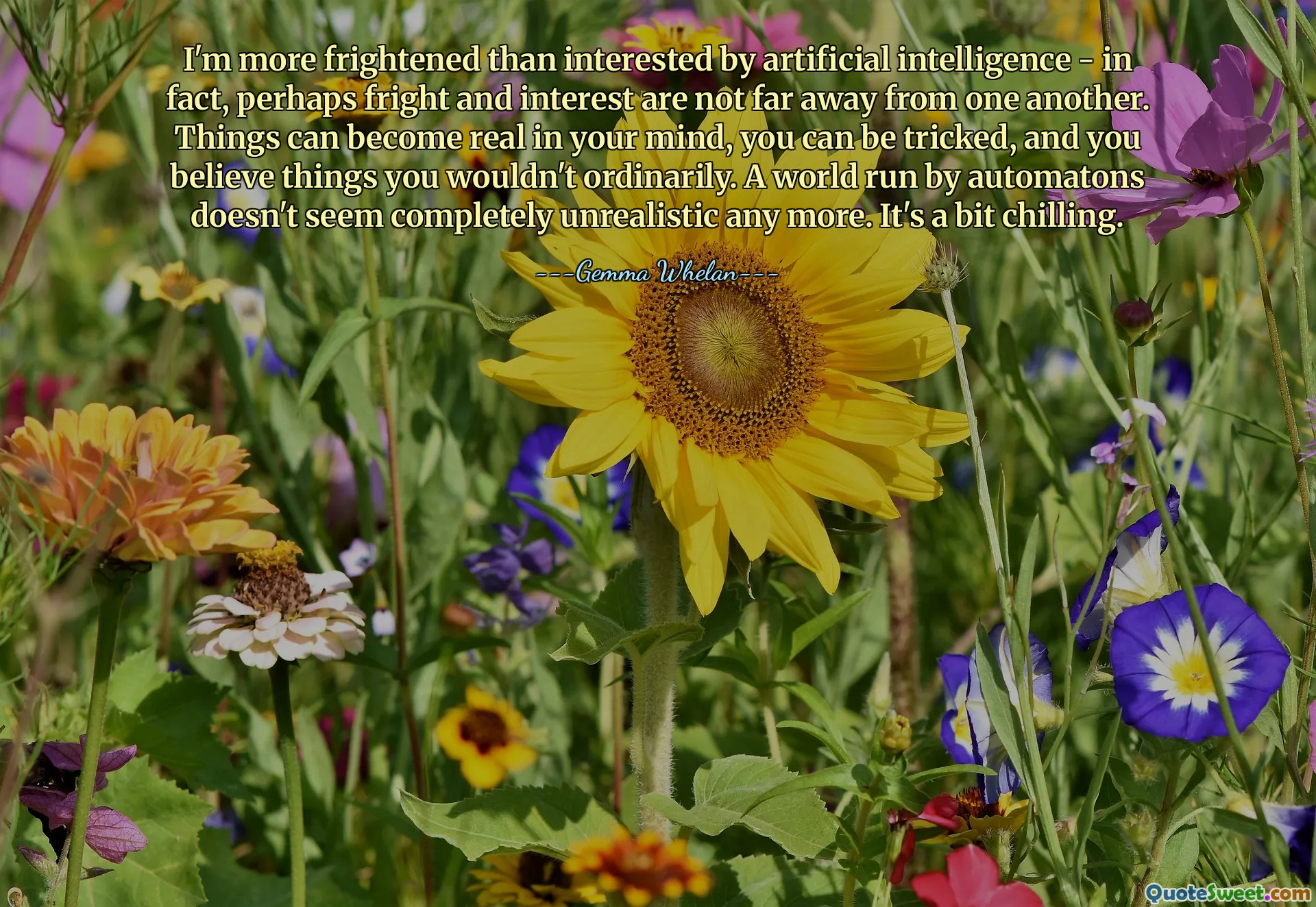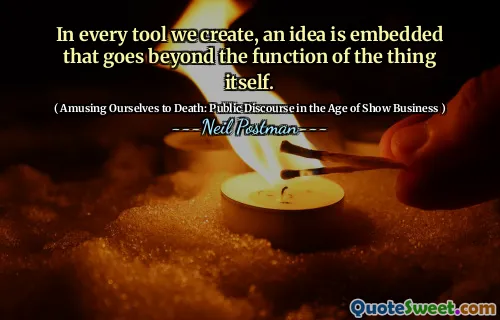
I'm more frightened than interested by artificial intelligence - in fact, perhaps fright and interest are not far away from one another. Things can become real in your mind, you can be tricked, and you believe things you wouldn't ordinarily. A world run by automatons doesn't seem completely unrealistic any more. It's a bit chilling.
The quote deeply explores the complex relationship humans have with artificial intelligence, highlighting a blend of fear and fascination that often accompanies technological advancement. Our innate curiosity about creating intelligent machines is matched by a lingering apprehension about their potential to disrupt our understanding of reality and control. The notion that fears and interests are intertwined suggests that what we find terrifying also piques our curiosity—it signifies the boundaries of our current comprehension and the allure of the unknown. The mention of things becoming real in the mind points towards the psychological impact AI can have, blurring the line between perception and reality. Our susceptibility to deception in digital spaces could lead to significant societal consequences, from misinformation to loss of trust in genuine human interaction. The idea that a world governed by automatons could be no longer entirely fictitious raises questions about autonomy, ethics, and the essence of human identity. It prompts us to consider whether our fear stems from the loss of control, of unpredictability, or perhaps the erosion of the human touch in decision-making processes. This reflection is chilling because it touches on our existential fears of obsolescence and the unknown future where machines might surpass human capabilities. As we continue to develop AI, it is vital to do so responsibly, acknowledging these fears while also understanding the tremendous benefits such technology could provide.
---Gemma Whelan---










